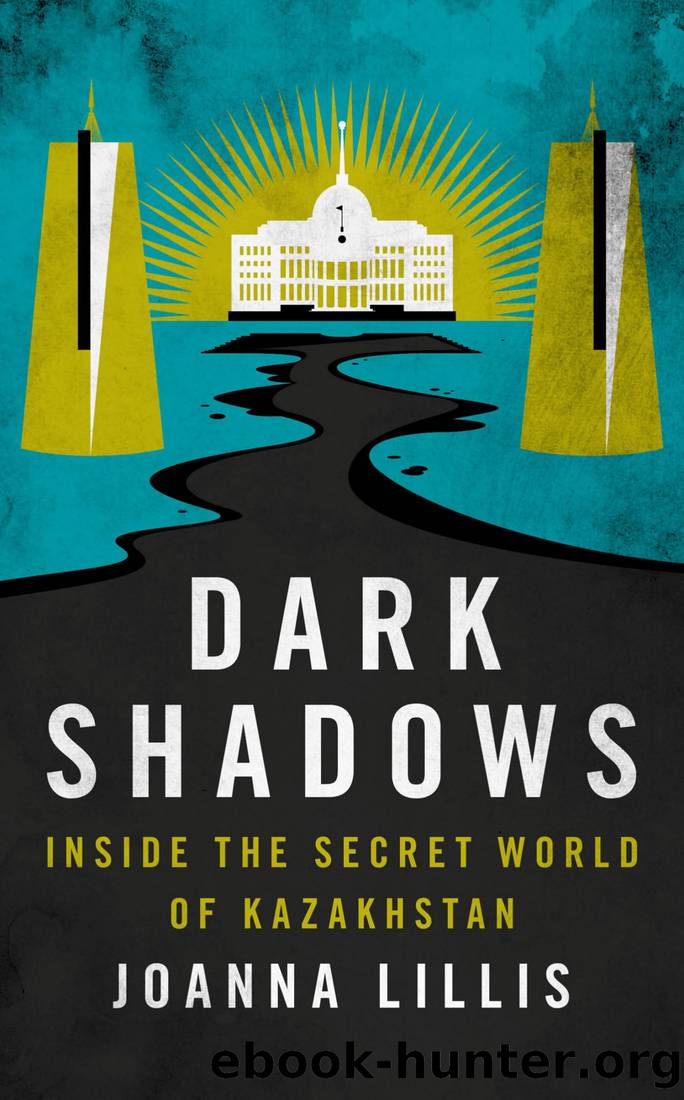Dark Shadows: Inside the Secret World of Kazakhstan by Joanna Lillis

Author:Joanna Lillis [Lillis, Joanna]
Language: eng
Format: epub
ISBN: 9781784538613
Google: C1FyswEACAAJ
Goodreads: 40398699
Publisher: I. B. Tauris, Limited
Published: 2018-10-30T00:00:00+00:00
Polina-apa (apa is a respectful term of address for older women, loosely âelder sisterâ) has no memories of the Aardakh, but the traumatic story was passed down by her mother (her father had disappeared in the Terror, presumed shot). âOur people went with nothing. My mother told me: we were driven out of the house. She said: I wanted to take a bucket, so weâd be able to gather water and have a drink on the way, but one soldier shoved me out and said: Go!â The villagers of the Chechen village of Lyunki were taken to the nearest town, Itum-Kale, and then on to Groznyy: âThere was a road in the mountains with a chasm underneath, a drop of two or three hundred metres,â said Polina-apa, her sharp brown eyes misting over as she recounted her motherâs memories. âOne old man said: Iâm not going anywhere, and he jumped from the truck into the chasm. [â¦] Thatâs how we got to Groznyy.â
Their expulsion was a shock, but with hindsight her mother realised that some Russians billeted with the family â âmedics and a captain, they lived with us, four of them, all Russiansâ â had been part of an advance guard to prepare the ground for the expulsions. That is how this old lady ended up with a Russian, rather than Chechen, name: her mother named her after a Russian nurse living with the family who helped at Polinaâs birth.
Three months later, the infant was one of 387,000 Chechens expelled from Chechnya, along with 91,000 Ingush.3 Most ended up in Kazakhstan, where this family was taken to a village in Kostanay Region in the north, where, according to family lore, the kindness of the Kazakhs kept them alive. âThis babushka came with kurt [dried cheese balls, a Kazakh staple] and blankets, and fed us and clothed us. We lived with them for two years, that Kazakh family.â She was so grateful that she brought up her children to be thankful to the Kazakhs. âThey say they survived only because the local Kazakhs helped,â said her son. âThey arrived in March, it was cold, with nothing, without clothes, without food. My mother always tells me: Ansar, youâre alive because the Kazakh people didnât let us die.â
The mayorâs late father was also a deportee, who ended up in Krasnaya Polyana in 1944. âHeâd always remember how they came here: they arrived in March, him at the age of 14. His sister and mother died of starvation, on the same day. He took them to the cemetery, buried them, came home, and his second sister was lying there dead. Theyâre buried here, in our cemetery. All in one day.â The younger siblings âwere left in my fatherâs hands; he worked raising cattle on the kolkhoz and helped out in the fields â thatâs how he fed the familyâ.
Download
This site does not store any files on its server. We only index and link to content provided by other sites. Please contact the content providers to delete copyright contents if any and email us, we'll remove relevant links or contents immediately.
| Africa | Americas |
| Arctic & Antarctica | Asia |
| Australia & Oceania | Europe |
| Middle East | Russia |
| United States | World |
| Ancient Civilizations | Military |
| Historical Study & Educational Resources |
Machine Learning at Scale with H2O by Gregory Keys | David Whiting(4313)
Never by Ken Follett(3955)
Fairy Tale by Stephen King(3396)
Oathbringer (The Stormlight Archive, Book 3) by Brandon Sanderson(3214)
The Man Who Died Twice by Richard Osman(3077)
Will by Will Smith(2919)
Rationality by Steven Pinker(2363)
Can't Hurt Me: Master Your Mind and Defy the Odds - Clean Edition by David Goggins(2341)
The Dark Hours by Michael Connelly(2307)
Friends, Lovers, and the Big Terrible Thing by Matthew Perry(2230)
The Dawn of Everything: A New History of Humanity by David Graeber & David Wengrow(2208)
Principles for Dealing With the Changing World Order: Why Nations Succeed and Fail by Ray Dalio(2054)
A Short History of War by Jeremy Black(1848)
HBR's 10 Must Reads 2022 by Harvard Business Review(1844)
Go Tell the Bees That I Am Gone by Diana Gabaldon(1757)
A Game of Thrones (The Illustrated Edition) by George R. R. Martin(1744)
Kingdom of Ash by Maas Sarah J(1677)
515945210 by Unknown(1666)
443319537 by Unknown(1559)
